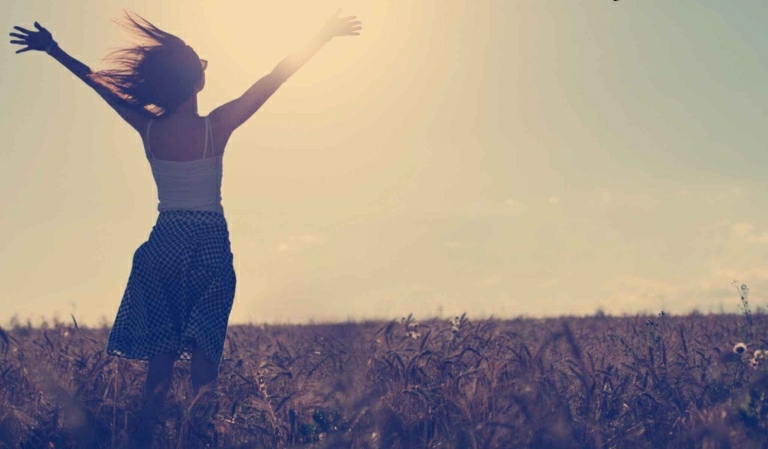People like to label. A lot. They may tell you they don’t, but it’s not true. It’s human nature to categorize objects, concepts, and people. Often, we’re actually communicating something about ourselves by saying “I’m not that”
But do labels hold us back? Limit our curiosity about a person? When did WE get the right to form a perception about someone we know nothing about? Where do we draw the line?
Labels help us feel safe and make sense of our world, but is that really healthy?
Fat, skinny, small, short, tall, thin, wide, ugly, gross, worthless, useless, stupid.
Why do we label people?
What compels us to define others by narrow parameters, putting us into categories because of our looks, religion, jobs, gender or race? Is it because going beneath the surface may take us to uncomfortable places? That going deeper into the core of someone’s being may threaten our sense of comfort, our cherished beliefs or challenge our expectations?
Is it just simpler to put ourselves and others into boxes of predetermined ideas?
To think we really know someone else than to ACTUALLY know them, genuinely or intimately?
Having a preconceived notion of someone you’re about to meet not only restricts your capacity to understand where the individual is coming from, give them the benefit of the doubt wherever deemed necessary, it also limits your ability to empathize with any situation they are involved in. After all, I heard she’s downright nasty, who CARES if she’s depressed, how can someone like HER have anxiety right?
Imagine others doing this to you, constantly. It feels unfair doesn’t it? But, we also do this to ourselves, willingly. Self imposed labels can start off with something completely harmless like am I an introvert…or an extrovert… but can escalate to a point where we are unable to truly invest in our potential.
The way we label ourselves can create a self-fulfilling prophecy. If you think you’re a loser, you won’t try for goals you want to achieve, further “proving” that you are a loser. Self-labeling can act as handcuffs that limit your potential. So if negative labeling is bad, is positive labeling good? You would think so, but not always. Holding on to positive identity labels can also be problematic. Let’s say someone considers them-self smart, but then they struggle with a challenge or do something foolish. That event can take a toll on their self-confidence and make it difficult to admit that they’ve made a mistake.
Aren’t there any benefits of labelling? Why does a social concept exist if it only brings about harm in the first place? Well statistics show that labels CAN help. Not all labels have negative consequences to its users. Labels such as Attention Deficit Hyperactivity Disorder (ADHD)
Dyslexia can act as “ Labels of forgiveness” relieving children of guilt and blame and increasing the tolerance of teachers and parents. They allow the teachers to understand where the children are coming from and make considerations and give the required amount of attention rather than putting the kids down by calling them Lazy or Stupid. We can see that the use of labels is a double edged sword and it is the parents and educators responsibility to navigate this minefield to know when they are helpful/ harmful.
Then we have labels like “ I am clinically depressed” or “ I have obsessive compulsive disorder” ( OCD) that gives them the incentive to seek therapy/ medication.
Most of the time, labels in itself aren’t the issue but it is the fact that society tends to write their own story for a label and judge and ostracize the victims for it.
So should labels be completely tossed to the side or are they a necessary evil?
Labels like race, gender, sexual orientation bring conversation to the table, address issues surrounding the label, gives people a chance to share their story. ( For example, us considering our country as one WITHOUT taking into account of the fact we are a unified country of different races will only promote a false holistic view of us while underlying the prevailing issues like racism, sexism etc) Until bigotry is completely and entirely gone, we need labels to unify! Having and owning labels CAN help us take hold of our identity, to find where we belong and help us connect to other people so that we feel we are not the only ones out there.
BUT obsessing over your own labels stops you from being an authentic version of you. You’re living up to a label someone who doesn’t know you as much as you do has given you, which is pretty weird when you think about it.
At the end of the day, Labels are black and white, but the world is more complicated than that. Your identity is not composed of one label. You are the sum of many different aspects of your personality and experience that come together to form a unique person.
So the next time you catch yourself labeling, tell yourself, we’re all not so different. We all want to be liked, accepted, understood, and loved for who we are, flaws and all.
Don’t let labels define you. It’s as simple as that. It’s possible to make mistakes and do good things, but that doesn’t mean that you’re “a mistake,” or “a success”, for that matter.
Repeat with me. You are the best version of yourself. Don’t let a label be the judge of your journey. Stay cool! Stay strong! Stay you! ( within the limits of your moral compass of course)
After all, my all time favorite philosopher once said that
“ Call me whatever you like; I am who I must be”
– Friedrich Nietzsche –
Written by Kaveesha Jeyanthan
Edited by Lakshan Banneheke
